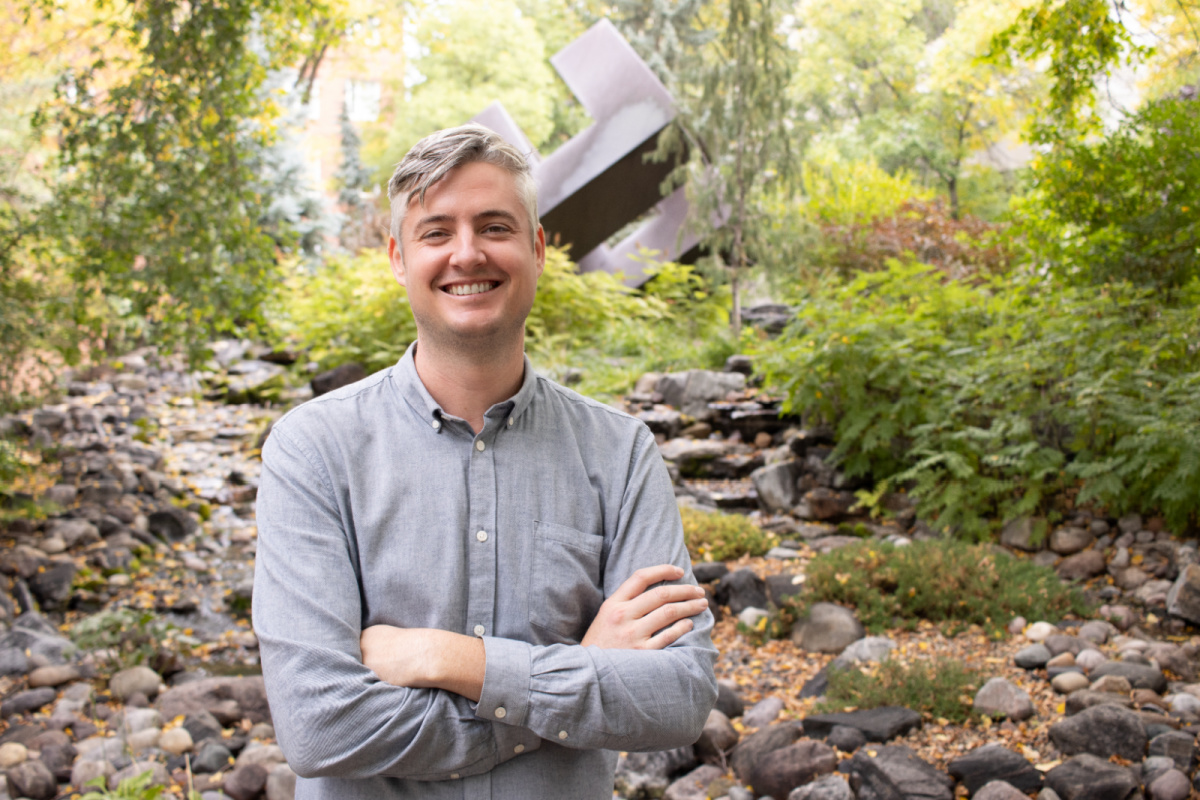Have you met… Dr. James Miles?
Faculty of Education - 6 October 2023
 Tell us about yourself!
Tell us about yourself!
I am a history educator and researcher originally from Vancouver. I have a PhD in curriculum and pedagogy from OISE / University of Toronto and I previously taught secondary school social studies and history in BC for 10 years. Prior to joining the University of Alberta, I was a visiting assistant professor at Teachers College, Columbia University in New York. As a settler Canadian, I am deeply interested in and passionate about the roles and responsibilities for history teaching and learning in dismantling settler colonialism in education.
What brought you to the U of A Faculty of Education?
I came to the U of A Faculty of Education because of its excellent reputation as a research and teaching institution. I’m looking to continue building on my research agenda while also getting to teach and learn from preservice teachers. The U of A also has many world-renowned scholars of education and is the home of the Thinking Historically for Canada’s Future SSHRC partnership grant led by Dr. Carla Peck, which I am excited to continue collaborating on.
What are your current research interests?
My current research is focused broadly in the fields of social studies and history education, with a specific interest in teaching and learning about difficult histories in settler colonial contexts. I am excited to continue collaborating on the Thinking Historically grant, including working on a study called the Portraits of Professional Practice that examines the unique contexts, opportunities and challenges facing history teachers across Canada. Alongside this research, I am also very interested in global movements towards historical justice and their relationships to history education, and I am co-writing a book on the topic with Dr. Mati Keynes, a colleague from Australia.
What inspired you to enter this field?
My experiences as a secondary school teacher were instrumental in my decision to enter this field. In particular, I found myself consistently feeling frustrated by the ways history education in Canada, including my own teaching practice, were often deeply implicated in maintaining settler colonial structures and ways of thinking. At the same time, I realized that history education also contains within it possibilities and opportunities to challenge oppressive structures and think differently about Canada’s past and present, but also to imagine different futures. Seeing how my students found ways to challenge dominant narratives and imagine alternatives was in many ways my main inspiration.
Describe your teaching philosophy.
My teaching philosophy aims to develop a respectful, inquiry-based and inclusive classroom where all students can voice their opinions and are treated as individuals deserving dignity and respect. My teaching philosophy is also informed by the work of Ladson-Billings and Paris and the principles of culturally responsive and sustaining pedagogies. Culturally responsive and sustaining pedagogy also values, fosters and sustains diverse knowledges, experiences and ways of knowing that learners bring with them into the classroom. This approach to teaching and learning also recognizes the ways in which the knowledges and experiences of communities of colour and Indigenous peoples have historically been marginalized and silenced in the classroom. Alongside the principles discussed above, I also recognize that just like my students, I am always learning and that a key component of my teaching philosophy is to recognize and acknowledge what I don’t know and what I am still learning. I encourage my students to take the same approach in their own teaching and learning.
What are your impressions of the U of A so far?
My impressions of the U of A are that it is an incredibly welcoming, friendly and collaborative place to work. Moving to a new city is never easy, and the faculty, staff and students I have interacted with at the U of A have gone out of their way to make me feel welcome and to find ways to support me, my family and my work. I truly think this speaks volumes about what the institution stands for. I’m also excited by all of the innovative research and initiatives going on across campus, and I look forward to finding ways to offer my experience and expertise.
What interests you outside work?
Outside of work, I enjoy running, cooking and reading. I’m looking forward to exploring the river valley and getting to know Edmonton better.